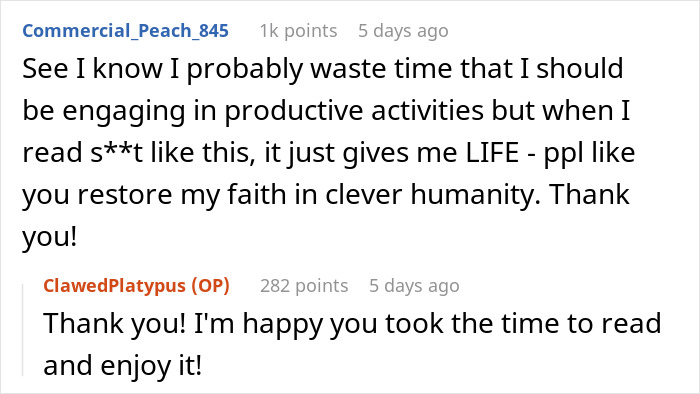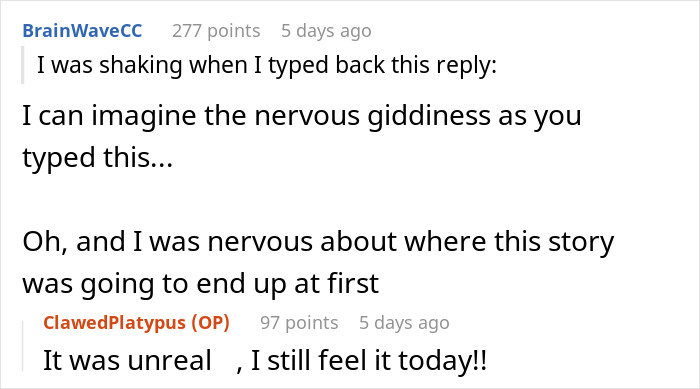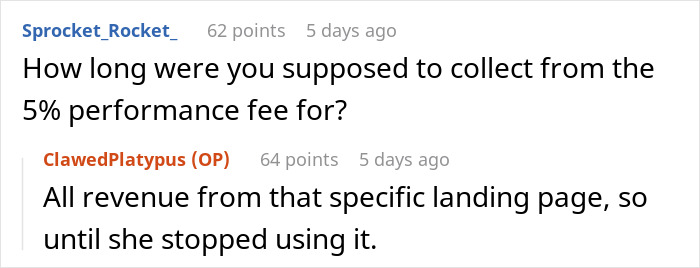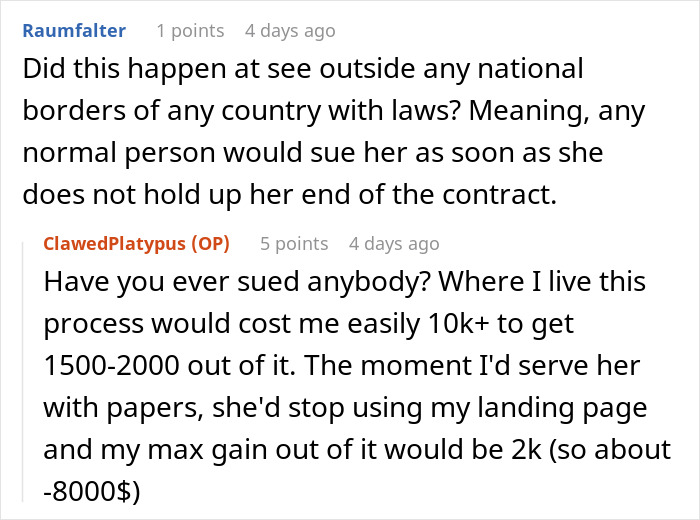One of the risks of sailing the seas of freelance work is getting ghosted by clients when it comes to payment. It’s especially bad when you can see they’re already using your carefully crafted output in the public domain and you’re not seeing a cent.
One freelancer’s client went radio silent on them after they’d sold their work. While they were wondering how they were going to get paid, however, fate delivered the perfect set of circumstances for revenge. They shared their story with an online community.
More info: Reddit
Working for yourself can be risky, as this freelance copywriter was finding out the hard way

Image credits: Antoni Shkraba Studio / Pexels (not the actual photo)
They’d completed and submitted their work, but their client ghosted them at the first mention of an invoice
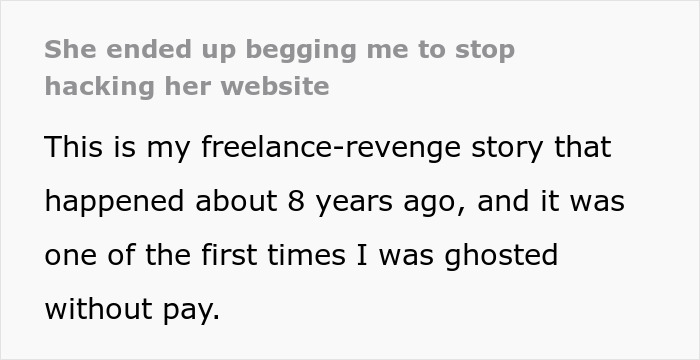
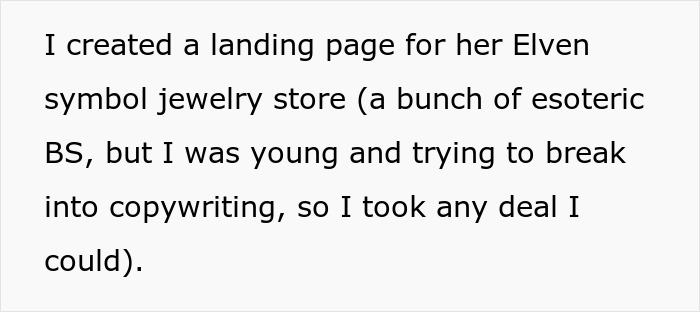

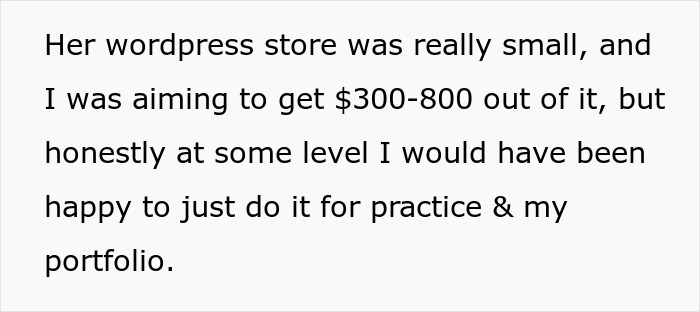

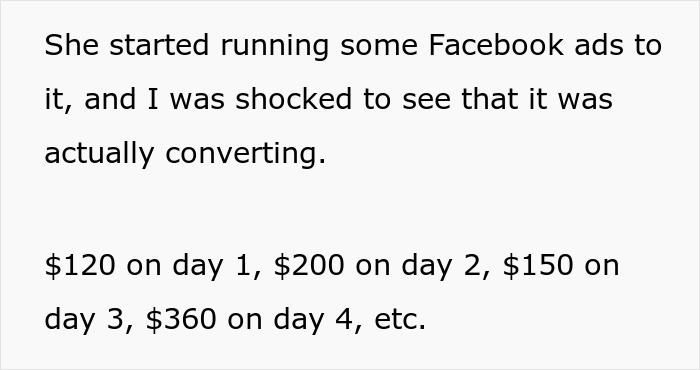

Image credits: olia danilevich / Pexels (not the actual photo)
The freelancer could see their work was being used on the website, but had no way of making sure they got paid
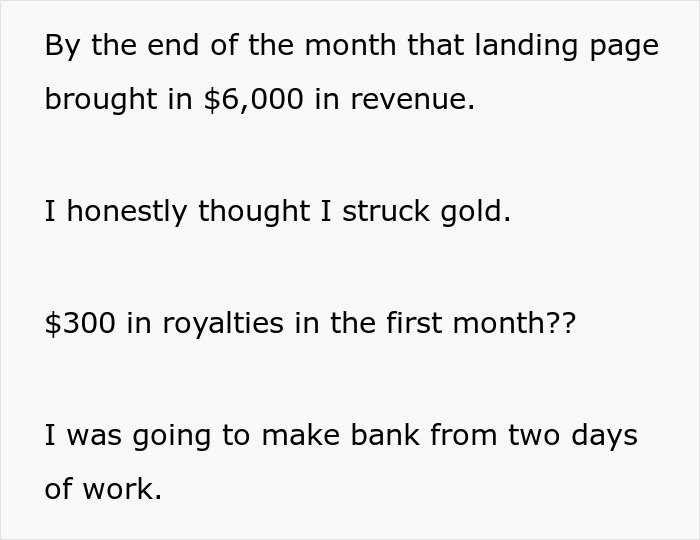

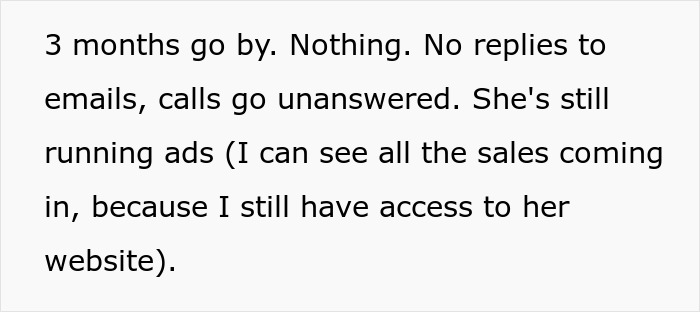


Image credits: Andrea Piacquadio / Pexels (not the actual photo)
Months later, the client got in contact with them with false claims they were hacking her website, but they told her they wouldn’t be talking to her until they got paid
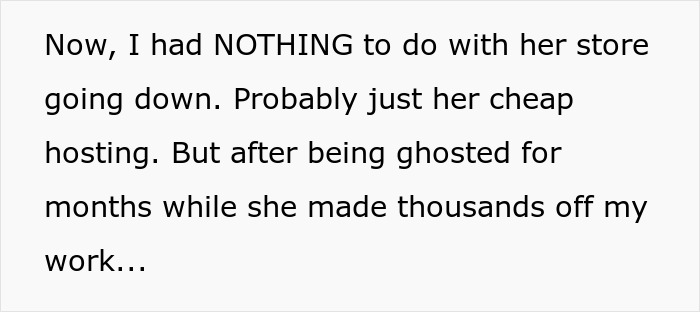
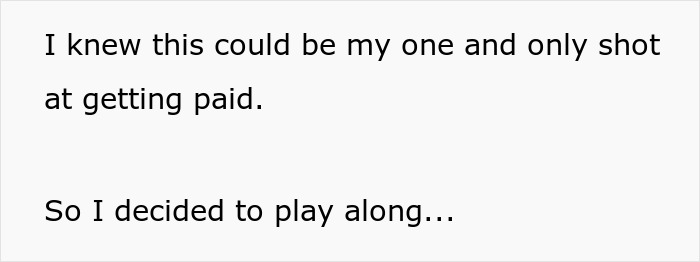
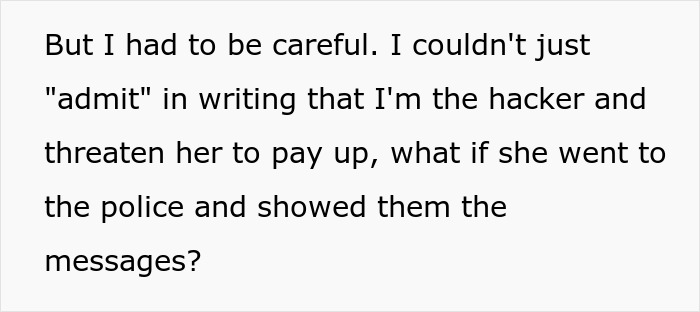
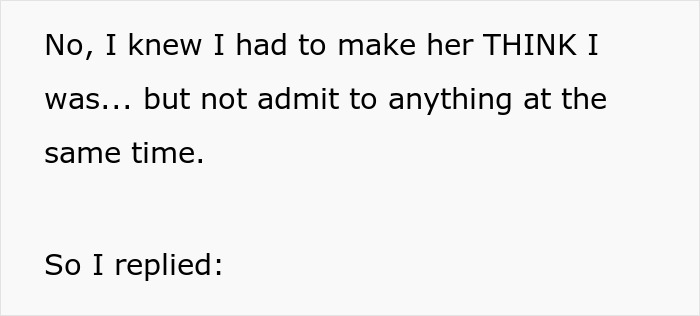

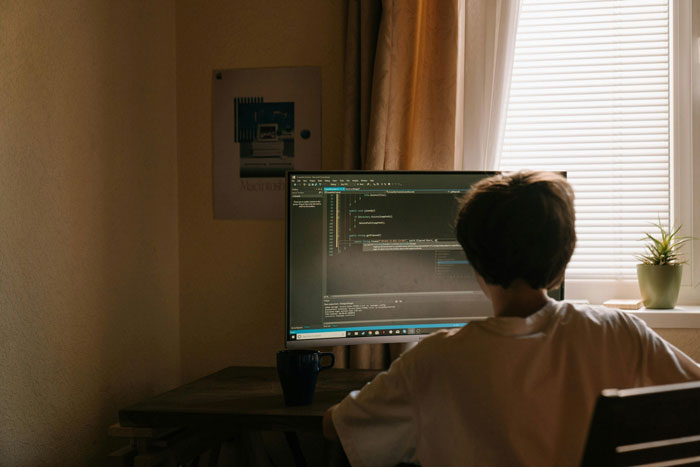
Image credits: cottonbro studio / Pexels (not the actual photo)
The panicked client paid them immediately and sent across proof of payment with a plea to release her site
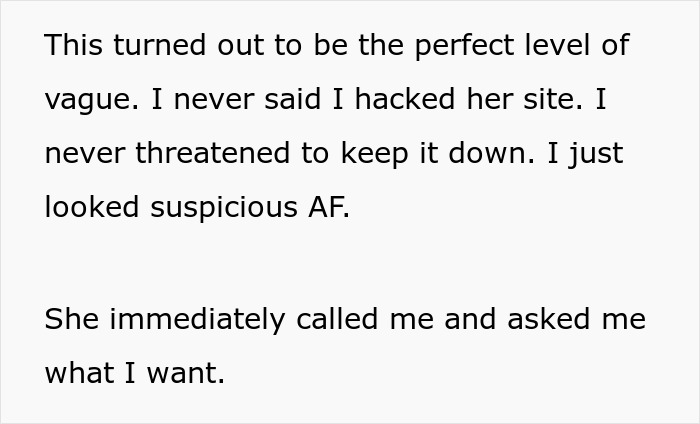
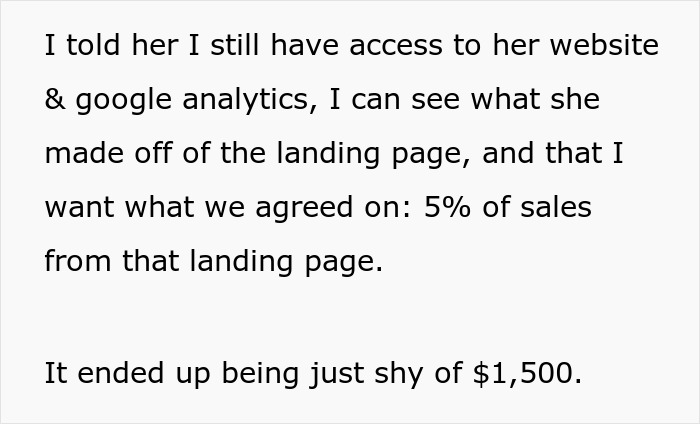

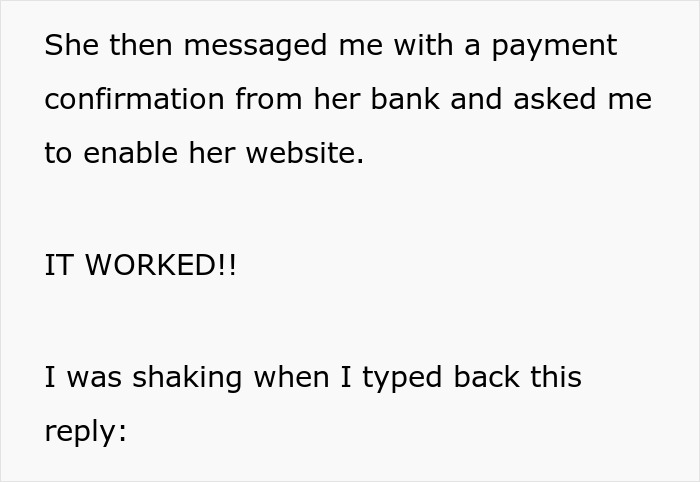
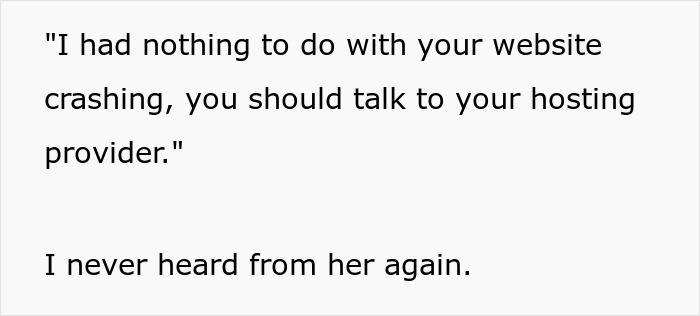
Image credits: ClawedPlatypus
That’s when they told her they weren’t hacking her website at all and that perhaps she should talk to her hosting provider
OP was just a young freelancer chasing portfolio work when they agreed to build a landing page for an online store selling elven-symbol jewelry. The deal? No upfront payment, just a 5% commission on sales. The site was small, the niche was weird, but OP figured even a few hundred bucks would be worth it.
Amazingly, the landing page worked. It brought in $6,000 in the first month alone. Sales poured in daily, and OP’s hopes soared. They dreamed of making decent bank from two days of work. Then, just as they mentioned their first invoice – poof – the client ghosted them. No replies, no payment. Just silence and her ad campaigns still running.
Three months passed. Nothing. Then, suddenly, panic. She messaged them in a frenzy: her website was down, and she thought they did it. OP hadn’t touched it, but they saw an opportunity. They stayed vague, just enough to look suspicious. “I’m not talking until I get paid,” they said.
It worked. She called instantly. They calmly stated they still had access, saw the earnings, and wanted their fair share. No threats, no hacking, just cold facts. Within hours, she paid nearly $1,500 and begged them to fix the site. Their reply? Cool as ice: “I had nothing to do with your site crashing.”
While the client never contacted OP again, they walked away with full payment and the satisfaction of knowing their clever strategy worked. A clean win, without crossing the legal line, and a story to share with other freelancers online.

Image credits: Ivan Samkov / Pexels (not the actual photo)
It was a welcome twist of fate that ensured OP got their payment in the end, but the situation they were facing is common amongst freelancers. What could OP do to protect themself in future, though? We went looking for answers.
In her article for Flanagan Lieberman & Rambo, Meg Terlau writes that, in the world of freelancing, verbal agreements can lead to misunderstandings and disputes. A written contract on the other hand, provides both parties with a clear reference point, reducing the risk of disagreements.
In his article for HackerNoon, Syed Balkhi recommends getting a deposit upfront (25% – 50% of the total project cost), using a contract that spells out all the payment terms, sending invoices properly (on time and as specified in your contract terms), using escrow services where available, and having a collection process.
OP got lucky in their story, but they and others like them would do well to firm things up with a contract that protects them, and their work, legally and in terms that are clear to all parties involved.
What would you have done if you’d found yourself in OP’s shoes? Do you think they played the situation perfectly? Have you ever had a client ghost you? Let us know in the comments!
In the comments, one reader speculated that the clueless client probably wasn’t paying for hosting either, while another said the freelancer restored their faith in clever humanity

